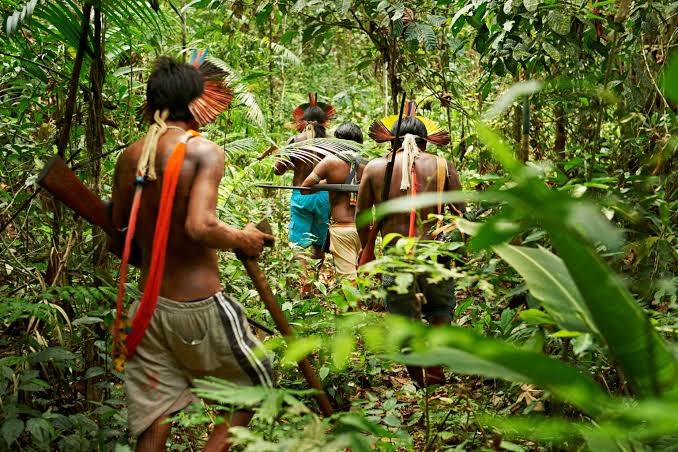
The Wampis people, an indigenous group, inhabit the Amazon rainforest in northern Peru. Their relationship with the Amazon is deeply intertwined with their cultural and spiritual identity. The Wampis rely on the forest for sustenance, medicinal plants, and resources, viewing it as a sacred space. However, their way of life faces threats from deforestation, resource extraction, and external influences. The Wampis actively engage in environmental advocacy to protect their ancestral lands, emphasizing the vital connection between their existence and the well-being of the Amazon ecosystem. Preserving the Wampis way of life is crucial not only for the indigenous community but also for the biodiversity and ecological balance of the Amazon rainforest.
The Wampis people, numbering around 10,000, predominantly reside in the Amazonas Region of Peru. Their traditional territories cover vast areas of the Amazon rainforest, and their cultural practices involve sustainable interactions with the environment. The forest provides the Wampis with food sources, traditional medicines, and materials for crafting essential tools and shelter.
Central to the Wampis worldview is the belief in the interconnectedness of all living beings within the forest. They see themselves as stewards of the land, responsible for maintaining a harmonious relationship with nature. This perspective is reflected in their rituals, ceremonies, and daily practices, which often revolve around honoring and respecting the spirits of the forest.
In recent decades, however, the Wampis face increasing challenges due to external forces. Deforestation, driven by logging, agriculture, and mining activities, encroaches upon their ancestral lands, disrupting the delicate balance they have maintained for generations. The extraction of natural resources poses a threat not only to the Wampis' way of life but also to the rich biodiversity of the Amazon.
To address these challenges, the Wampis have been actively involved in environmental and cultural preservation efforts. They have established the Autonomous Territorial Government of the Wampis Nation, a unique governance structure that asserts their autonomy and aims to protect their land from external exploitation. The Wampis also collaborate with non-governmental organizations and international partners to raise awareness about the importance of safeguarding the Amazon rainforest.
The struggle for the Wampis is not only about protecting their own cultural heritage but also about preserving a vital global resource. The Amazon rainforest plays a crucial role in regulating the Earth's climate, housing diverse ecosystems, and sustaining countless species of flora and fauna. Thus, the Wampis' fight for the Amazon is intertwined with the broader global effort to address environmental conservation and climate change.
The Wampis people's connection to the Amazon rainforest goes beyond just survival; it is deeply ingrained in their cultural identity. The forest serves as the backdrop for their myths, stories, and spiritual practices, reinforcing the notion that they are an integral part of the ecosystem.
Traditional Wampis knowledge encompasses an intricate understanding of the diverse plant and animal species within their territory. They have developed sustainable practices for hunting, fishing, and agriculture, ensuring the long-term health of the environment. For instance, they practice swidden agriculture, rotating cultivation areas to allow the land to regenerate naturally.
The Wampis also rely on the forest for their spiritual well-being. Shamanic practices involve using medicinal plants found in the Amazon to heal both physical and spiritual ailments. The forest is considered a living entity, and its elements are believed to possess unique energies and powers that contribute to the overall balance of life.
In the face of external threats, such as illegal logging, mining, and oil extraction, the Wampis have been at the forefront of resistance. They engage in advocacy and legal battles to protect their land rights, seeking recognition for their territories and the autonomy to govern themselves. The struggle extends beyond immediate environmental concerns to safeguarding their cultural practices and preserving the delicate equilibrium of the Amazon ecosystem.
International recognition and support for the Wampis cause have grown in recent years, with environmental and human rights organizations partnering with them to amplify their voice on the global stage. The Wampis people's fight for the Amazon is not just a local or regional issue; it is a testament to the critical importance of indigenous knowledge and sustainable practices in the face of ongoing environmental challenges worldwide


You must be logged in to post a comment.